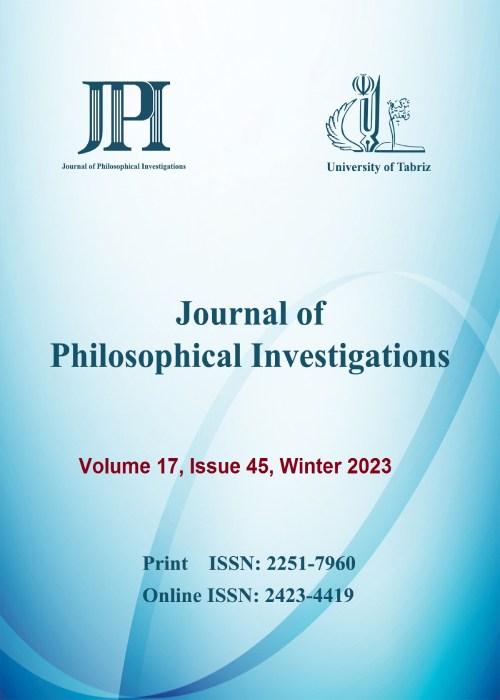The Possibility of Akrasia from the viewpoint of Socrates and Aristotle
Author(s):
Abstract:
When an agent acts contrary to his، all-things-considered، best judgment while he is able to do the best he acts akratically. Socrates for the first time posed the problem. He believed that akrasia is impossible since nobody can act wrong intentionally or waiver the best. But it sometimes seems that people commit evil intentionally; the reason، according to Socrates، is that they count the action in question as good due to their ignorance. Equating the good and pleasant، Socrates declares that the claim that «reason is sometimes overcome by passion» is baseless. Socrates knows nothing more powerful than knowledge. But Aristotle is known to be a defender of possibility of akrasia. He distinguishes between actualized and suspended knowledge. Agent with suspended knowledge may know related universals but particulars، or he may know both، but his knowledge is superficial like an asleep، insane or a drunken man. It is only the suspended knowledge that might be acted contrary to. It is not comprehensible that an agent equipped with actualized knowledge slips. This paper tries to show that، despite the opinion of some scholars، Aristotle''s standpoint is very close to that of Socrates.
Keywords:
Socrates , Aristotle , Akrasia , weakness of will , incontinence , good , pleasure , reason
Language:
Persian
Published:
Philosophical Investigations, Volume:9 Issue: 16, 2015
Pages:
1 to 22
magiran.com/p1422681
دانلود و مطالعه متن این مقاله با یکی از روشهای زیر امکان پذیر است:
اشتراک شخصی
با عضویت و پرداخت آنلاین حق اشتراک یکساله به مبلغ 1,390,000ريال میتوانید 70 عنوان مطلب دانلود کنید!
اشتراک سازمانی
به کتابخانه دانشگاه یا محل کار خود پیشنهاد کنید تا اشتراک سازمانی این پایگاه را برای دسترسی نامحدود همه کاربران به متن مطالب تهیه نمایند!
توجه!
- حق عضویت دریافتی صرف حمایت از نشریات عضو و نگهداری، تکمیل و توسعه مگیران میشود.
- پرداخت حق اشتراک و دانلود مقالات اجازه بازنشر آن در سایر رسانههای چاپی و دیجیتال را به کاربر نمیدهد.
In order to view content subscription is required
Personal subscription
Subscribe magiran.com for 70 € euros via PayPal and download 70 articles during a year.
Organization subscription
Please contact us to subscribe your university or library for unlimited access!


